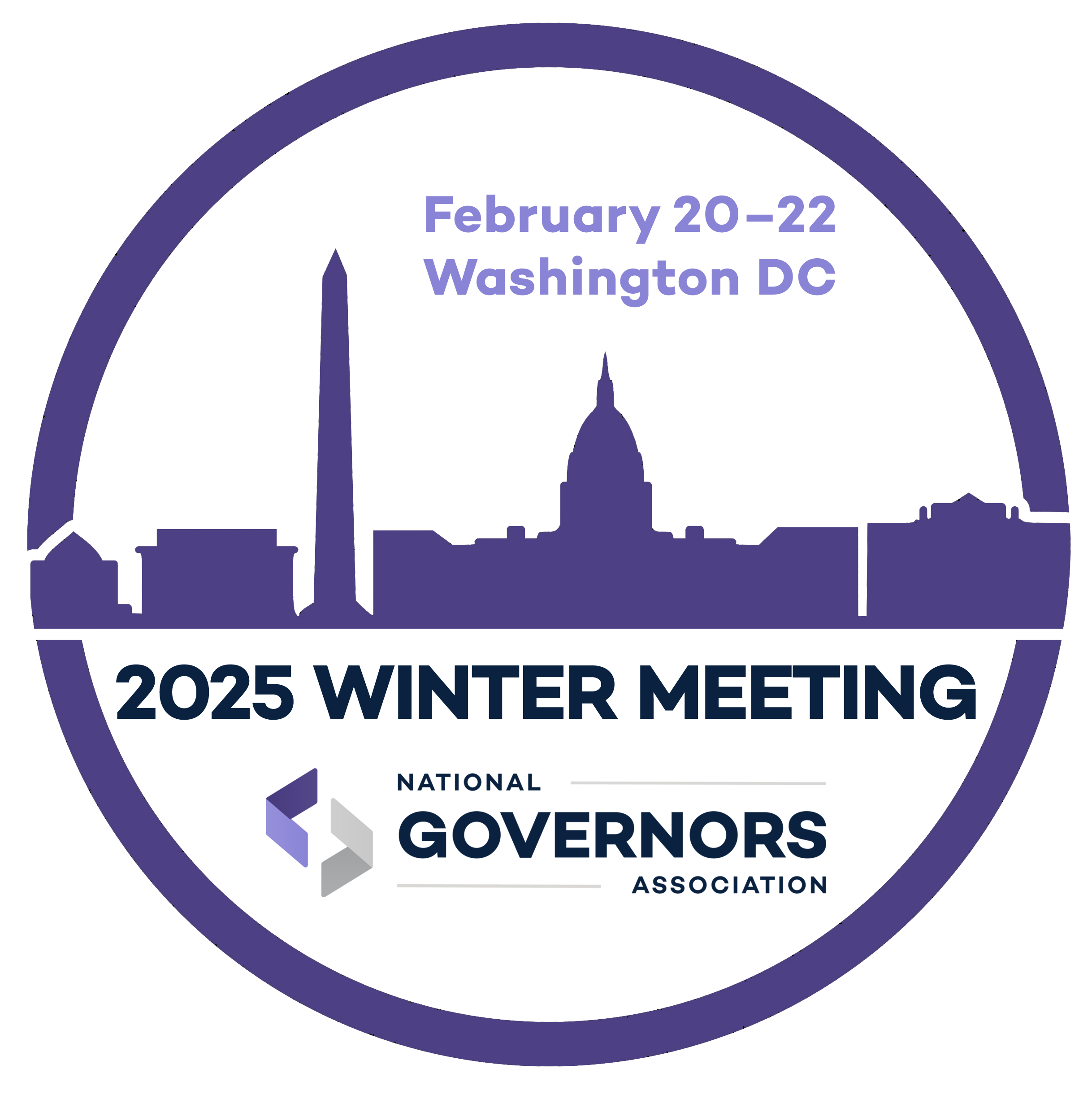Nov. 7, 2019 | Hanover, MD
The National Governors Association (NGA) co-hosted this meeting with the State of Maryland to explore grid modernization strategies. Maryland is preparing for increased electrification, primarily electric vehicles (EVs), and is looking for ideas to incentivize EVs, while managing impacts on the electric grid. Participants discussed ways to achieve Maryland’s aggressive EV procurement targets, while mitigating grid impacts. The retreat was largely interactive and focused on collaboration and action planning as NGA facilitated how Maryland can best prepare for transportation electrification.
Resources
- Agenda
- Electric Vehicle Incentives and Policies
—Brett Williams, Principal Advisor, Center for Sustainable Energy - EVsmart
—Kristy Fleischmann-Groncki, Manager, Baltimore Gas & Electric - Seagirt Marine Terminal — Container Yard Electrification Plan
—Javier Itriago, Vice President, Port Development & Infrastructure, Ports America Chesapeake - Septa’s Sustainability Program & Battery Electric Bus Deployment
—Jeff Knueppel, General Manager, Southeastern Pennsylvania Transportation Authority (SEPTA) - Solar Power at Maryland Department of Transportation
—Eddie Lukemire, Program Manager, Maryland Department Of Transportation - Electric Vehicle Perspectives
—Rob Stewart, Manager, Smart Grid & Technology, Pepco Holdings/Exelon
Sessions
- Overview and Meeting Goals
Maryland’s planning team provided context for the retreat by sharing how their organizations are preparing for the impacts posed by electric vehicles. The session included 1-minute introductions from all stakeholders in which each person posed a question she/he would like to be addressed during the day.- Matt Rogotzke, Policy Analyst, NGA
- Mary Beth Tung, Director, Maryland Energy Administration
- Earl Lewis, Deputy Secretary for Policy, Planning & Enterprise Services, Maryland Department of Transportation
Electric Vehicle Incentives, Policies and Education
This session provided an overview of successful EV and EVSE incentives and policies. Maryland has offered various incentives to meet state EV goals as well as provide funding for charging infrastructure. Both incentives have been popular and are typically exhausted quickly. Other topics include vehicle incentives, consumer education and equity considerations.- Matt Rogotzke, Policy Analyst, NGA
- Brett Williams, Principal Advisor, Center for Sustainable Energy
- Kristy Fleischmann-Groncki, Manager, Baltimore Gas & Electric
- Peter Kitzmiller, President, Maryland Automobile Dealers Association
Heavy Duty Electrification
Ports and transit authorities play a key transportation role across Maryland and subsequently are central to electrification strategies. However, heavy duty electrification poses unique challenges such as lengthy charge periods, demand peaks, and equipment ownership models. Panelists discussed the opportunities and challenges associated with their own equipment electrification.- Jessica Rackley, Program Director, NGA
- Javier Itriago, Vice President, Port Development & Infrastructure, Ports America Chesapeake
- Jeff Knueppel, General Manager, Southeastern Pennsylvania Transportation Authority (SEPTA)
Stakeholder Discussion—Reactions to the EV Incentives & Heavy-Duty Electrification Panels
Stakeholders shared their thoughts on the most promising avenues for state action based on the discussion during the first two panels.- Jessica Rackley, Program Director, NGA
Working Lunch – Overview of MDOT Solar Deployment
A presenter from Maryland’s DOT provided highlights of its solar array deployments. The program is one of the first of its kind to be operated by a state transportation agency and creates clean energy while adding no costs to taxpayers.- R. Earl Lewis, Deputy Secretary, Maryland DOT
- Eddie Lukemire, Program Manager, Maryland DOT
Managing Grid Impacts for Reliability & Resilience Benefits
Panelists discussed the challenges posed by the proliferation of electric vehicles on the grid. Current challenges included adjusting to increasing DC Fast chargers, charging standardization, mitigating demand charges and heavy-duty vehicle impacts.- Matt Rogotzke, Policy Analyst, NGA
- Jason Stanek, Chairman, Maryland Public Service Commission
- Nancy Ryan, Partner, Energy + Environmental Economics
- Rob Stewart, Manager, Smart Grid & Technology, Pepco Holdings/Exelon
Stakeholder Discussion — Reactions to the Grid Impacts Panel
Stakeholders shared their thoughts on the most promising avenues for state action to address grid impacts.- Matt RogotzkePolicy Analyst, NGA
Opportunities for Stakeholder Feedback
All stakeholders shared their thoughts on the most promising avenues for state action based on the day’s discussion.- Jessica Rackley, NGA
- Emma Cimino, NGA
State Team Debrief
About This Meeting
The U.S. electric power system is evolving. Renewable energy generation has more than doubled since 2000 and smart meters are now in use by more than half of U.S. energy customers. Electric vehicle adoption is growing, as is the transition to home heating electrification. Meanwhile grid resilience is being challenged by aging infrastructure, more frequent and intense weather events and increasing physical and cyber threats.
In the face of these changes, governors are looking for solutions to update their state’s infrastructure. After a competitive application process, NGA worked with governor-designated teams from four selected states to advance one or more grid modernization objectives proposed by their governors.
Maryland Grid Modernization Retreat
Maryland is preparing for increased electrification, primarily electric vehicles (EVs), and is looking for ideas to incentivize EVs, while managing impacts on the electric grid. Participants discussed ways to achieve Maryland’s aggressive EV procurement targets, while mitigating grid impacts.
New Jersey Retreat on Advancing Vehicle-To-Grid Technologies
An exploration of strategies to implement vehicle-to-grid (V2G) technologies and policies in New Jersey, such as allowing vehicles to provide services to the electric grid like demand response, backup battery power, or frequency regulation.
New Mexico Grid Modernization Retreat
The New Mexico Grid Modernization Retreat explored strategies to implement New Mexico’s Energy Transition Act, which requires 100 percent zero-carbon electricity for utilities by 2045 and rural electric cooperatives by 2050. The retreat examined how to reach the targets in the Act with a modernized grid in the most affordable, reliable, and equitable way.
Facilitating Heating Sector Transformation In Rhode Island
Rhode Island is pursuing rapid heat sector decarbonization and is interested in exploring ways to facilitate a successful transformation without exacerbating energy burdens. This retreat convened state participants to understand technology pathways, think innovatively about a fuel-neutral utility business model, and proactively approach workforce development to meet the needs of a decarbonized heat sector.













